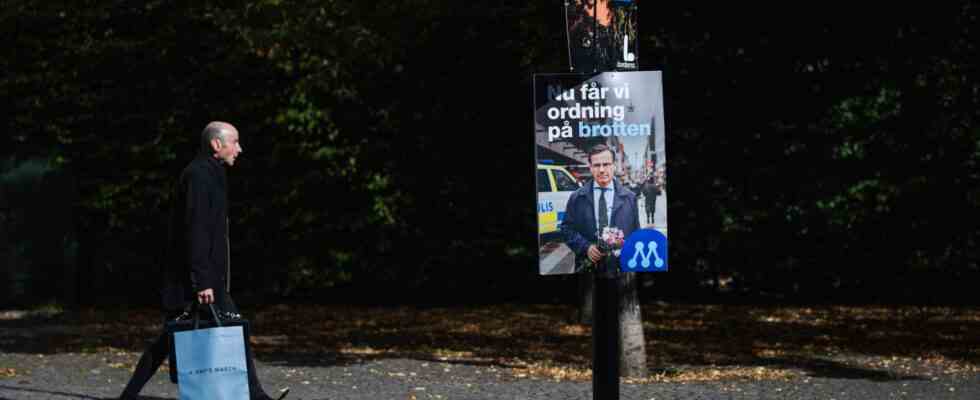Status: 09/16/2022 08:23 a.m
Sweden is about to change political direction: from left to conservative-right. Not everyone on the streets of Stockholm thinks that’s a good thing – but many expected the change anyway.
It’s afternoon in Stockholm, an early autumn day – and suddenly many things are different: Magdalena Andersson from the Social Democrats has resigned as prime minister and is now leading an interim government. The right-wing bloc has the majority in parliament and for the first time the right-wing populist Sweden Democrats appear to be taking on a role in a new government.
Henrik Rober is retired and the election day was a turning point for him. The “political image” has changed, says the former dentist: “From now on, the Sweden Democrats are an accepted party, even if the Social Democrats say they will never work with them. Five years ago, you couldn’t say certain things without that you as a politician were beheaded for it. Today, the same statements no longer have negative connotations.”
Populism is no longer just a matter for right-wing populists
What he means by that: that the Social Democrats are also saying that there shouldn’t be any neighborhoods like a “Somalitown” in Sweden. That the conservative moderates loudly demand deportations for criminals with a migration background. Populist statements are not just a matter for right-wing populists. Pirjo Auvinen agrees. She is a Finnish journalist and just moved back to Sweden:
I am very amazed at how Sweden has changed – and not for the better. In my opinion, the whole election campaign was racist and I am very surprised that the Sweden Democrats set the agenda and the Social Democrats went along with it.
The jerk to the right – “a Europe-wide trend”
Magnus Eriksson from Stockholm shrugs his shoulders. Right-wing populism – that’s a Europe-wide trend, he believes, and not a Swedish phenomenon. “I think Sweden will move in the same direction as many other countries in Europe. Just like in Poland, Hungary and other countries, you will see more nationalism in Sweden,” says Eriksson. In Denmark, this trend started earlier. So it’s “a natural development,” says Eriksonn, “even if Sweden has resisted so far.”
“People are looking for answers””
However, the difference to the other EU countries mentioned is that they do not have the same positive image abroad as Sweden. In Germany there is a word for this euphoric idealization of the country: the Bullerbü syndrome. It describes the longing for the ideal society.
Pensioner Rocki Rober doubts that Sweden’s good image will suffer from the new political situation: “I don’t think Sweden’s image will change that much. There are extreme forces everywhere and the world is upside down. People are looking Answer. A lot of people are having a hard time and they want a solution now.”
And then she compares the Sweden Democrats with former US President Donald Trump: he too listened to the people. Especially in the country – just like the Sweden Democrats. Other parties would not do that.

